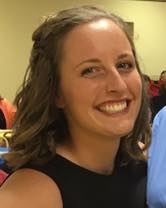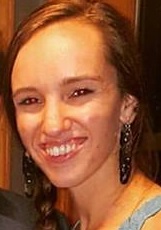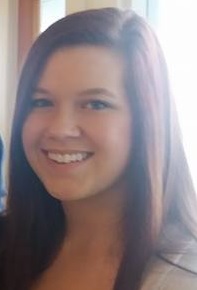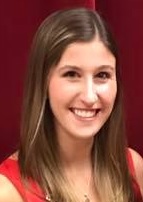Celebration of Scholars
Behaviorally Inhibited Individuals Exhibit Greater Minute Ventilation and Breathing Frequency Than Non-Inhibited Individuals When Breathing 7.0% CO2 Versus 4.5% CO2
 Name:
Timothy Nicosia
Name:
Timothy Nicosia
Major: Biology
Hometown: Mt. Prospect, IL
Faculty Sponsor: Paul Martino
Other Sponsors: Dr. Justin Miller and Dr. Daniel Miller
Type of research: Independent research
 Name:
Katie McAuliffe
Name:
Katie McAuliffe
Major: Biology
Hometown: Burr Ridge, IL
Faculty Sponsor: Paul Martino
Other Sponsors: Dr. Justin Miller and Dr. Daniel Miller
Type of research: Independent research
 Name:
Emma Patschorke
Name:
Emma Patschorke
Major: Neuroscience
Hometown: Chicago, IL
Faculty Sponsor: Paul Martino
Other Sponsors: Dr. Justin Miller and Dr. Daniel Miller
Type of research: Independent research
 Name:
Allison Sharapan
Name:
Allison Sharapan
Major: Neuroscience
Hometown: Vernon HIlls, IL
Faculty Sponsor: Paul Martino
Other Sponsors: Dr. Justin Miller and Dr. Daniel Miller
Type of research: Independent research
 Name:
Kirstyn Buchholz
Name:
Kirstyn Buchholz
Major: Neuroscience
Hometown: Falls City, NE
Faculty Sponsor: Paul Martino
Other Sponsors: Dr. Justin Miller and Dr. Daniel Miller
Type of research: Independent research
 Name:
Annika Evenhouse
Name:
Annika Evenhouse
Major: Biology
Hometown: Chicago, IL
Faculty Sponsor: Paul Martino
Other Sponsors: Dr. Justin Miller and Dr. Daniel Miller
Type of research: Independent research
 Name:
Leonard Ferdman
Name:
Leonard Ferdman
Major: Biology
Hometown: Beverly Hills, CA
Faculty Sponsor: Paul Martino
Other Sponsors: Dr. Justin Miller and Dr. Daniel Miller
Type of research: Independent research
 Name:
Amanda Grove
Name:
Amanda Grove
Major: Biology and Neuroscience
Hometown: River Falls, WI
Faculty Sponsor: Paul Martino
Other Sponsors: Dr. Justin Miller and Dr. Daniel Miller
Type of research: Independent research
 Name:
Morgan Harris
Name:
Morgan Harris
Major: Biology
Hometown: Arlington Heights, IL
Faculty Sponsor: Paul Martino
Other Sponsors: Dr. Justin Miller and Dr. Daniel Miller
Type of research: Independent research
 Name:
Marissa Masini
Name:
Marissa Masini
Major: Neuroscience
Hometown: Palatine, IL
Faculty Sponsor: Paul Martino
Other Sponsors: Dr. Justin Miller and Dr. Daniel Miller
Type of research: Independent research
 Name:
Kyle Robinson
Name:
Kyle Robinson
Major: Exercise and Sports Science
Hometown: Chicago, IL
Faculty Sponsor: Paul Martino
Other Sponsors: Dr. Justin Miller and Dr. Daniel Miller
Type of research: Independent research
 Name:
Nicholas Santos
Name:
Nicholas Santos
Major: Exercise and Sports Science
Hometown: Wilmette, IL
Faculty Sponsor: Paul Martino
Other Sponsors: Dr. Justin Miller and Dr. Daniel Miller
Type of research: Independent research

Major: Biology
Hometown: Chicago, IL
Faculty Sponsor: Paul Martino
Other Sponsors: Dr. Justin Miller and Dr. Daniel Miller
Type of research: Independent research
 Name:
Jordyn Williams
Name:
Jordyn Williams
Major: Biology
Hometown: Laguna Hills, CA
Faculty Sponsor: Paul Martino
Other Sponsors: Dr. Justin Miller and Dr. Daniel Miller
Type of research: Independent research
Abstract
Behavioral inhibition (BI) is a temperament in which an individual tends to avoid unfamiliar situations or environments. Individuals who are behaviorally inhibited are more vulnerable to developing an anxiety disorder when placed under stressful conditions. BI individuals also learn faster and are slower to stop the response to a stimulus (Sheynin, 2005; Servatius, 2008). Our lab over the past several years has been investigating the relationship between a respiratory stress response to 4.5% CO2, 7.0% CO2, and BI. BI is characterized by avoidance behavior, aimed to reduce the fear of a certain stimulus. In this study, a computer game was used as an aversive stimulus to detect BI. 4.5% CO2 and 7.0% CO2 was administered as a mild respiratory stimulus to detect differences in those with BI compared to those without. One indication of PTSD is avoidance behaviors. 4.5% CO2 decreases the pH of the blood, hence causing an increase in frequency of breathing (FBR) , tidal volume (VT) , and inspired minute ventilation (VI). 7.0% CO2 would elicit a greater response, thus these changes in FBR, VT, and VI would be greater than 4.5% CO2. We hypothesize that individuals with behavioral inhibition will have a greater sensitivity to CO2, therefore, they will exhibit a greater respiratory and heart rate response in all parameters. Subsequently, those that are behaviorally inhibited will have a greater response to both 7.0% and 4.5% CO2 than those that are non behaviorally inhibited. BI and non-BI individuals were separated based on Adult Measure of Behavioral Inhibition (AMBI) and Retrospective Measure of Behavioral Inhibition (RMBI). Heart rate and respiratory data were collected using a BioPac computer data collection system while breathing 7.0% CO2 or 4.5% CO2.Submit date: March 15, 2017, 9:30 p.m.
